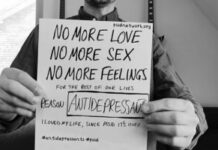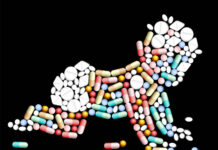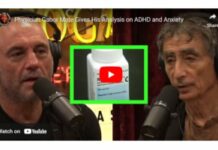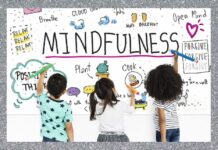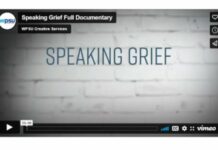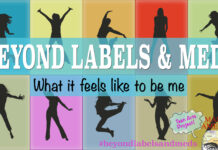Failing to Report Child Sex Abuse Should Be Made Illegal: Major British Inquiry
From the BBC: "We heard time and time again how allegations of abuse were ignored, victims were blamed and institutions prioritised their reputations over the protection of children," said inquiry chairwoman Prof. Alexis Jay.
Even With Troubled Histories, Psych Hospitals Face Few Sanctions
From The Atlanta Journal-Constitution: Parents may never know that the facility treating their child has had serious patient care issues.
Now Doctors Want to Screen EVERY American Child Over Age of Eight for Anxiety
From the Daily Mail: Experts said the new recommendations could spur a surge in the use of anti-anxiety medications, which, some fear, are already at the center of a budding addiction crisis in the US.
Can You Punish a Child’s Mental Health Problems Away?
From The New York Times: Future generations will look back on the tactics used in the troubled teen industry and ask: How did we allow these practices to pass off as mental health treatment for so long?
Q&A: How Can I Best Support My Child’s Withdrawal from Psychiatric Drugs?
Two experts offer do's and don'ts on "being there" during the challenging and sometimes time-consuming process of safely discontinuing mental health medications.
What I Wish I Had Known Before I Stopped Taking Antidepressants, and Before I...
From the Washington Examiner: I learned the hard way that doctors can be remarkably casual about things patients can’t afford to be when it comes to putting people on, and taking them off, antidepressants.
The Hidden Epidemic of Sexual Dysfunction Experts Are Blaming on SSRI Antidepressants
From The Daily Mail: Patients on antidepressants are not being warned of the risk that the pills could permanently ruin their sex lives, experts say.
Health Risks to Babies When Antidepressants Used During Pregnancy
Babies born to mothers taking antidepressants during pregnancy were more than six times as likely to have neonatal withdrawal syndrome—including breathing problems, irritability/agitation, tremors, feeding problems, and seizures—than those born to mothers taking other types of drugs.
Dr. Gabor Maté on the Truth About ADHD and Anxiety
From The Joe Rogan Experience: "The so-called experts say that ADHD is 'the most heritable mental illness there is,'" says renowned physician Gabor Maté. "But I say, it's neither an illness, nor is it heritable."
I Went Undercover to Expose Abuse at a Mental Health ‘Hospital’
From the BBC: 'Patients' are being locked away, abused, and neglected in the formative years of their lives, as one of the UK's biggest mental health 'hospitals' actually makes them worse.
‘Toxic Culture’ of Abuse at Mental Health ‘Hospital’ Revealed by BBC Secret Filming
From the BBC: Humiliated, abused and isolated for weeks - patients are being harmed due to a 'toxic culture' at one of the UK's biggest mental health 'hospitals.'
Mental Health & Our Schools, Part 2
Schools are rolling out programs and services intended to safeguard students’ emotional well-being. They are full of potential—and pitfalls.
Defund Social Workers: Cops by Another Name
From The New Republic: If you measure in terms of the power to coerce, surveil, and inflict lasting harm, social workers are, thanks to the nature of the job, cops by another name.
‘Speaking Grief’ Documentary Asks, ‘What if We Got Better at Grief?’
From WPSU Creative Services: What would happen if we could speak the truth about our pain, and hear the truth about other people's pain? What if we got better at grief?
In Andrew’s Honor: Attorney Elizabeth Rich’s Fight Against Unjust Commitments
Anyone detained and then formally committed under Wisconsin’s civil mental health laws can initially be held and forcibly drugged for six long months. Yet, for years, not a single person has been able to appeal the six-month commitments in court.
A Return to Dignity from Psychiatric and Childhood Abuse
Homebirth was a reflection of how the mental health system should work: Informed person-centered care while respecting your agency.
What Video Games Can Teach Us About Effective Parenting
There is a secret to the programming of these games that seems to stir children to a level of greatness. Fortunately, that magic is completely transposable to our interactions with them.
Dramatic Decline in California’s Use of Antipsychotic Drugs on Its Foster Children
From The Imprint: Youth and Family News: A new study indicates statewide reforms have freed thousands of abused and neglected children from the lasting effects of the most powerful psychiatric drugs, but concerns about other medications persist.
#RestoreTheirRights: An Update on Guardianship Action
It’s time to change the conversation around guardianship. The question is not “When do we remove someone’s rights?” but “How can we best support them?”
Some Schools Bringing Back Corporal Punishment; Parents Opt In as Students Protest
From TODAY: "Corporal punishment signals to the child that a way to settle interpersonal conflicts is to use physical force and inflict pain," said the American Academy of Pediatrics in a 2014 statement.
Child Frustration Breeds Race Hatred; Columbia Scientist Finds Punishment of Baby Is Seed of...
From Project NoSpank/The New York Times, December 22, 1940: The aggressiveness which adults exhibit, said Dr. Ashley Montagu, is originally produced during childhood by parents, teachers, nurses, or whoever else participates in the process of socializing the child.
The NY Times Suddenly Discovered We’re Giving Kids Dangerous Drugs
From the New York Post: The New York Times' splashy story about the overmedication of children was 20 years too late. Why does obvious damage to children go ignored for so long?
Call for Teen Art in All Media!
MIA's Family Resources and Arts sections are co-sponsoring an online teen multimedia art exhibition with the theme “Beyond Labels and Meds: What It Feels Like to Be Me.”
This Teen Was Prescribed 10 Psychiatric Drugs. She’s Not Alone.
From The New York Times: The problem of multiple medication use, or polypharmacy, that first emerged a decade ago among young people in foster care and low-income settings, has now gone mainstream.
Beyond Drugs: The Universal Experience of Addiction | Gabor Maté, MD
From drgabormate.com: Most addicted people use no drugs at all, and addiction cannot be understood if we restrict our vision of it to substances, legal or illicit.







